Regulierung internationaler Finanzmärkte und Banken
Diese Forschungsgruppe analysiert Ursachen und Konsequenzen von internationalen Aktivitäten von Banken sowie den regulatorischen Rahmen, innerhalb dessen globale Banken operieren.
International aktive Banken können eine effiziente internationale Kapitalallokation vereinfachen und zur internationalen Risikoteilung beitragen. Allerdings können sie auch Instabilitäten generieren und zu einer Übertragung von Schocks über nationale Grenzen hinaus beitragen. Dies ist einer der Gründe für die aktuelle Re-Regulierung des internationalen Bankensystems.
Die Forschungsgruppe trägt auf drei verschiedenen Wegen zur Literatur bei. Erstens analysiert die Gruppe empirisch, warum internationale Banken global aktiv sind und wie Schocks im Finanzsystem übertragen werden. Zweitens untersucht die Gruppe das Entstehen von systemischen Risiken und Ungleichgewichten im integrierten Bankenmarkt und die sich daraus ergebenden Konsequenzen für die Realwirtschaft. Drittens werden die Auswirkungen von Änderungen bezüglich der Bankenaufsicht und Bankenregulierung analysiert, mit einem besonderen Fokus auf dem europäischen Integrationsprozess
IWH-Datenprojekt: International Banking Library
Forschungscluster
Wirtschaftliche Dynamik und StabilitätIhr Kontakt

- Abteilung Finanzmärkte
PROJEKTE
07.2017 ‐ 12.2022
Die politische Ökonomie der europäischen Bankenunion
Europäischer Sozialfonds (ESF)
Ursachen für nationale Unterschiede in der Umsetzung der Bankenunion und daraus resultierende Auswirkungen auf die Finanzstabilität.
01.2015 ‐ 12.2017
Dynamic Interactions between Banks and the Real Economy
Deutsche Forschungsgemeinschaft (DFG)
Referierte Publikationen
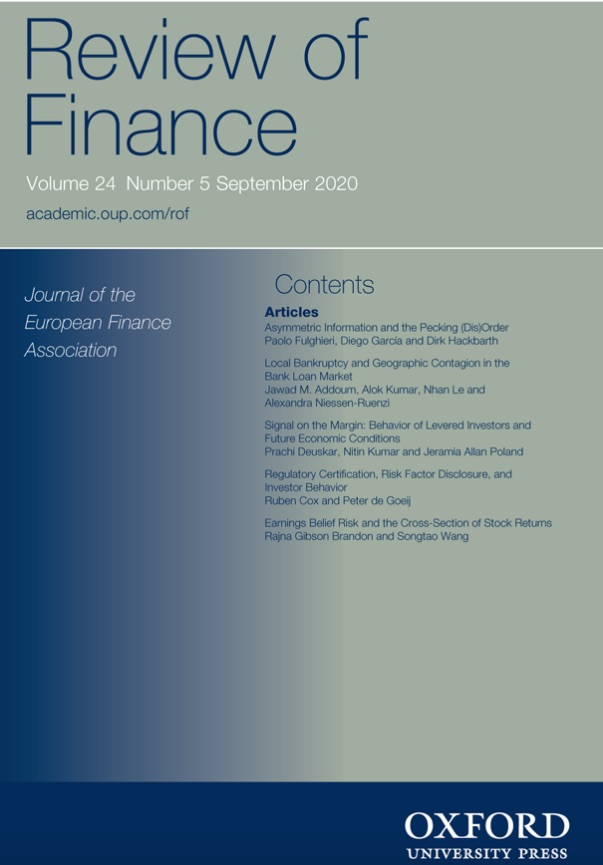
Do Banks Benefit from Internationalization? Revisiting the Market Power–Risk Nexus
in: Review of Finance, Nr. 4, 2013
Abstract
We analyze the impact of bank internationalization on domestic market power (Lerner index) and risk for German banks. Risk is measured by the official declaration of regulatory authorities that a bank is distressed. We distinguish the volume of foreign assets, the number of foreign countries, and different modes of foreign entry. Our analysis has three main results. First, higher market power is associated with lower risk. Second, holding assets in many countries reduce market power at home, but banks with a higher share of foreign assets exhibit higher market power. Third, bank internationalization is only weakly related to bank risk.
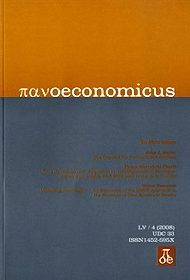
Initial Evidence from a New Database on Capital Market Restrictions
in: Panoeconomicus, Nr. 3, 2012
Abstract
One of the key obstacles to the empirical analysis of capital controls has been the unavailability of a detailed set of indicators for controls that cover a broad set of countries over a range of years. In this paper, we propose a new set of indicators derived from the Annual Reports on Exchange Arrangements and Export Restrictions. Contrary to most earlier attempts to construct control indicators from this source, our set of indices allows one to analyze the control intensity separately for inflow, outflow and repatriation controls. An additional set of indicators features information on the institutional design of controls. At first glance, the data show that the financial crisis caused a surge in capital market restrictions, most notably concerning the derivatives market. This reflex, which is not justified by the scarce empirical evidence on the success of controls, shows the importance of having a valid measure to allow an econometrically sound policy evaluation in this field. The data are available from the author upon request.
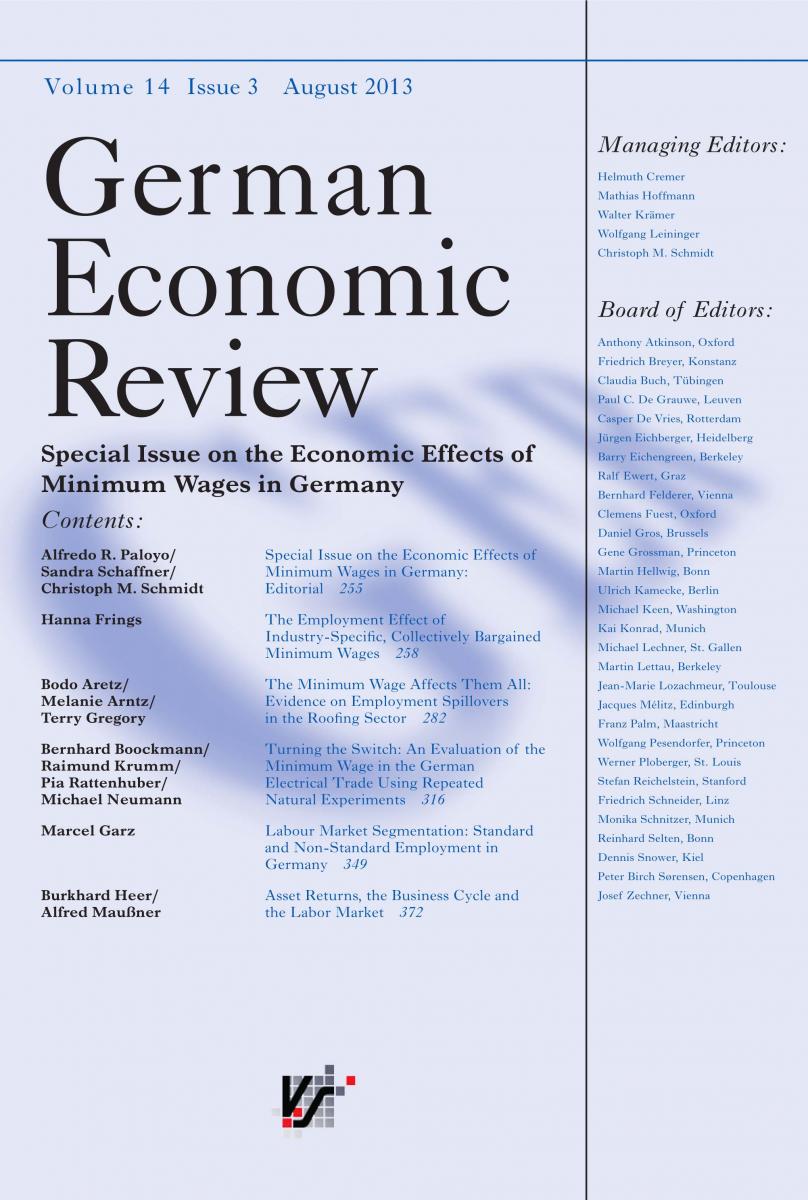
The Distorting Impact of Capital Controls
in: German Economic Review, Nr. 1, 2012
Abstract
This paper uses panel data to show that capital controls have a significant impact on international interest rate differentials. Various types of controls can be distinguished within the data. The analysis shows that the aforementioned effects of capital controls on interest rates are especially strong in the case of capital import controls on portfolio capital; the implementation of these controls has been suggested in the wake of the Asian Crisis to prevent further crises. The results presented herein contradict the hypothesis that capital controls can achieve a restructuring of the maturity of capital inflows without a distortion in international capital allocation.
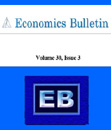
Protect and Survive? Did Capital Controls Help Shield Emerging Markets from the Crisis?
in: Economics Bulletin, Nr. 1, 2012
Abstract
Using a new dataset on capital market regulation, we analyze whether capital controls helped protect emerging markets from the real economic consequences of the 2009 financial and economic crisis. The impact of the crisis is measured by the 2009 forecast error of a panel state space model, which analyzes the business cycle dynamics of 63 middle-income countries. We find that neither capital controls in general nor controls that were specifically targeted to derivatives (that played a crucial role during the crisis) helped shield economies. However, banking regulation that limits the exposure of banks to global risks has been highly successful.
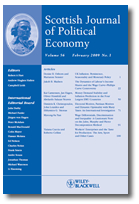
The Impact of Fixed Exchange Rates on Fiscal Discipline
in: Scottish Journal of Political Economy, Nr. 5, 2011
Abstract
In this paper, it is shown that, contrary to standard arguments, fiscal discipline is not substantially enhanced by a fixed exchange rate regime. This study is based on data from 116 countries collected from 1975 to 2004 and uses various estimation techniques for dynamic panel data, in particular a GMM estimation in the tradition Arellano and Bover (1995) and Blundell and Bond (1998). Contrary to previous papers on this topic, the present paper takes into account that the consequences of a new exchange rate regime do not necessarily fully manifest immediately.
Arbeitspapiere

To Separate or not to Separate Investment from Commercial Banking? An Empirical Analysis of Attention Distortion under Multiple Tasks
in: IWH Discussion Papers, Nr. 2, 2016
Abstract
In the wake of the 2008/2009 financial crisis, a number of policy reports (Vickers, Liikanen, Volcker) proposed to separate investment banking from commercial banking to increase financial stability. This paper empirically examines one theoretical justification for these proposals, namely attention distortion under multiple tasks as in Holmstrom and Milgrom (1991). Universal banks can be viewed as combining two different tasks (investment banking and commercial banking) in the same organization. We estimate pay-performance sensitivities for different segments within universal banks and for pure investment and commercial banks. We show that the pay-performance sensitivity is higher in investment banking than in commercial banking, no matter whether it is organized as part of a universal bank or in a separate institution. Next, the paper shows that relative pay-performance sensitivities of investment and commercial banking are negatively related to the quality of the loan portfolio in universal banks. Depending on the specification, we obtain a reduction in problem loans when investment banking is removed from commercial banks of up to 12 percent. We interpret the evidence to imply that the higher pay-performance sensitivity in investment banking directs the attention of managers away from commercial banking within universal banks, consistent with Holmstrom and Milgrom (1991). Separation of investment banking and commercial banking may indeed be associated with a reduction in risk in commercial banking.

Friend or Foe? Crowdfunding Versus Credit when Banks are Stressed
in: IWH Discussion Papers, Nr. 8, 2015
Abstract
Does bank instability push borrowers to use crowdfunding as a source of external finance? We identify stressed banks and link them to a unique, manually constructed sample of 157 new ventures seeking equity crowdfunding. The sample comprises projects from all German equity crowdfunding platforms since 2011, which we compare with 200 ventures that do not use crowdfunding. Crowdfunding is significantly more likely for new ventures that interact with stressed banks. Innovative funding is thus particularly relevant when conventional financiers are facing crises. But crowdfunded ventures are generally also more opaque and risky than new ventures that do not use crowdfunding.
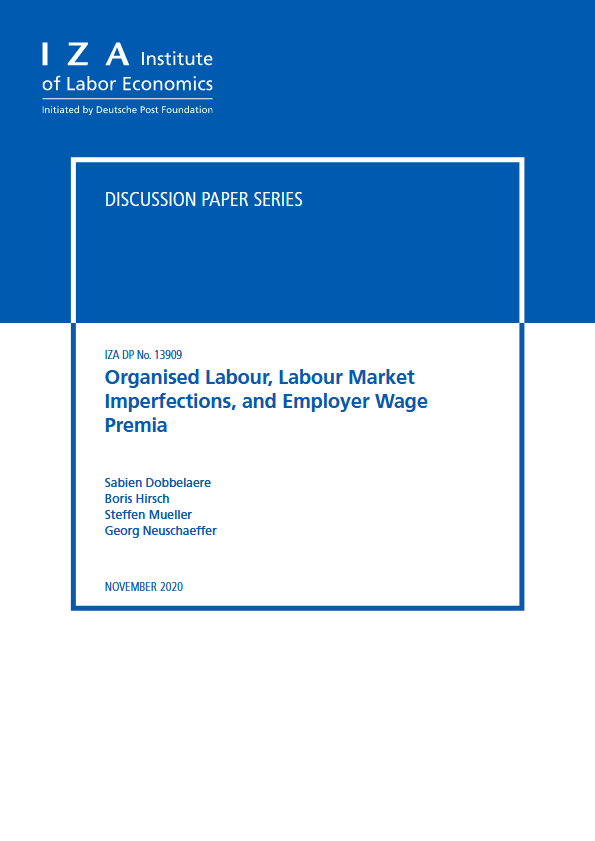
Explaining Regional Disparities in Housing Prices across German Districts
in: IZA Institute of Labor Economics, March 2022
Abstract
Over the last decade, German housing prices have increased unprecedentedly. Drawing on quality-adjusted housing price data at the district level, we document large and increasing regional disparities: growth rates were higher in 1) the largest seven cities, 2) districts located in the south, and 3) districts with higher initial price levels. Indications of price bubbles are concentrated in the largest cities and in the purchasing market. Prices seem to be driven by the demand side: increasing population density, higher shares of academically educated employees and increasing purchasing power explain our findings, while supply remained relatively constrained in the short term.















